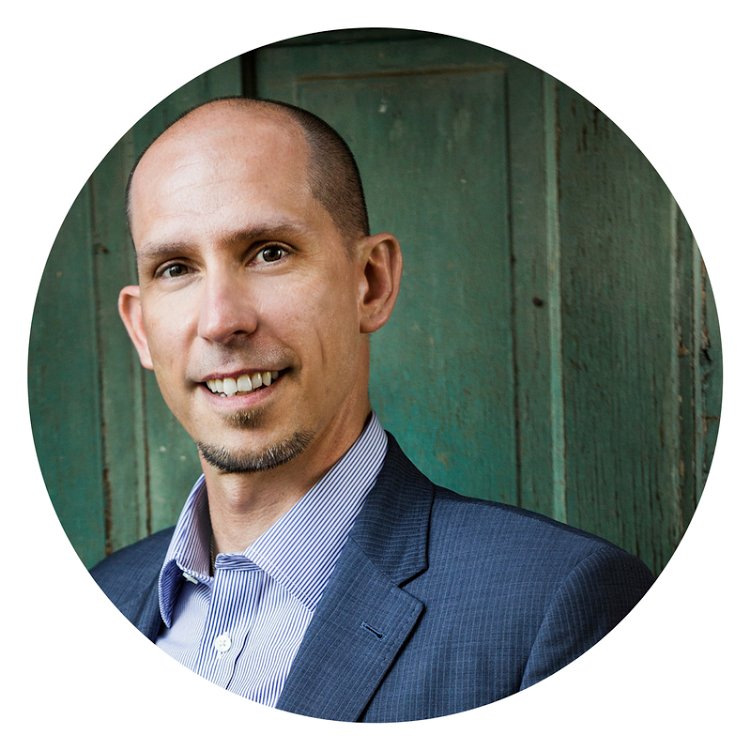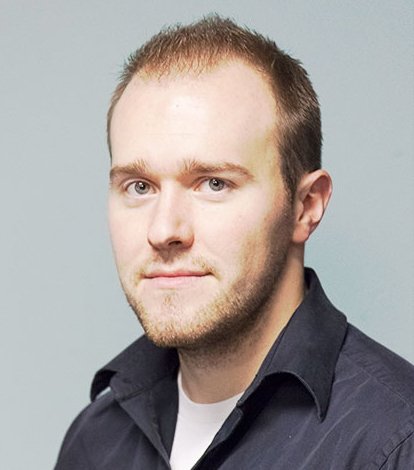20 questions with Shawn Murphy
Do you feel energized when you step into your workplace each morning?
Do you feel motivated to put in your best effort to help the company? Do you feel optimistic that your company wants you to succeed?
You should.
Or, at least, that's what Shawn Murphy believes. Shawn is on a mission to teach leaders around the world that their style and approach affects each of their employees. By focusing on an optimistic office culture, they will improve the quality of life for those who work for them, while also inspiring those employees to do some of their most creative, innovative work.
Shawn stepped away from his busy "Leadership Rebel" lifestyle to answer 20 questions, exclusive to Steemit.
20 questions with Shawn Murphy

1 - How would you describe yourself in one sentence?
Shawn - I’m an idealistic, yet realistic optimist, who has a strong inclination for precision and helping people find meaning and purpose in their work.
2 - It's clear you're passionate about creating energizing workplace environments. What led you down this path?
Shawn - I’ve worked in environments that were soul-sucking. I’ve seen the physical impact bad work environments have on people. I want to help leaders reverse this unfortunate trend.
3 - So you've experienced negative workplace environments firsthand?
Shawn - I have. It’s what drove me out of my corporate work and to go out on my own. The VP of HR had no idea her need to “look good at all costs” was demotivating and created a toxic culture.
4 - I understand your book, "The Optimistic Workplace," delivers practical plans to help businesses move toward workplace optimism. For those who haven't read the book, what is one simple thing any office can do to move closer to this goal?
Shawn - Good question. The good news is there are many things that can be done to start the work. Here are a few: Be open to learning about yourself, recognize that your leadership style has the greatest influence on the work environment, ask employees how the work environment influences their ability to do their work.
5 - In your opinion, do employees have equal responsibility in creating positive workplaces? Or does most of that responsibility fall on the employer?
Shawn - It is a shared responsibility, but the start of the work begins with the leader. Leaders need to learn how their style impacts the work environment, and consequently, employees’ ability to do their best work. Think of it this way: If a leader is oblivious to his impact on people’s morale, it will be very difficult for employees to create an optimistic workplace.
6 - If you were to make a dramatic career shift and apply for an office job position, what would be the top thing you'd want the company to provide/offer to you as a new employee?
Shawn - The top thing a company would need to offer is flexibility in work hours. Whenever possible, I like to align my work with my natural energy levels. I’m an early morning person. So, I’d want to work early hours so I can do my best work. I also need to change my physical work environment often to stay focused. Having the flexibility to work in different areas would be best for me.
7 - Last year you wrote about how office drama sucks. Are certain industries or types of offices more susceptible to workplace drama than others?
Shawn - Office drama is alive and thriving in all industry types. The ones susceptible to it are those led by managers who believe work is work and people need to just do what they’re paid to do. This antiquated perspective alienates employees from their “leaders."
8 - As an experienced writer, what advice would you give to others who are new to the craft, or those who are interested in blogging?
Shawn - Learn to balance the art and business of writing by being open to feedback. This will help you have productive conversations with editors. Remember that a publisher’s job is to give your book the best shot in the market place. This means sacrifices will need to be made on both sides—yours and theirs.
9 - Do different generations tend to want different things when it comes to workplace environments?
Shawn - Millennials have different expectations when it comes to the work: flexibility, growth opportunities, working with purpose and meaning, for example. These, in turn, shape the environment at work. That said, I believe much of what Millennials want is linked to human nature, a non-generational categorization. For example, we all want to feel valued, needed, and to grow. What we can thank Gen Y for is elevating the importance of this conversation by expecting to find these experiences in our work lives.
10 - What is your opinion on an open work space versus individual offices? Is one better than the other?
Shawn - I think if a company moves in this direction, they need to create both open spaces and quiet spaces to allow people to do deep work.
11 - How do you see the typical office evolving over the next 10 years?
Shawn - I believe the make-up of the workforce will include more contingent, or contract workers. This will be driven by a couple of things: the volume of people making this sort of work arrangement and skill gaps in the company’s existing workforce. I also think we’ll see less emphasis on perks and more on creating lasting culture and workplace climate change. This will be done by focusing on the variables that create work environments that foster innovation, creativity, deep work, for example.
12 - Is public speaking something you've had to work hard at, or did it come naturally to you?
Shawn - It was definitely a labor of love. I remember in 4th grade feeling terrified over giving an oral book report. I didn’t like the mental cloudiness that overcame my thinking and minimizing my performance. Of course I didn’t think about it in those terms. But it was after failing miserably in that book report that I vowed I would always volunteer to go first whenever we had to speak in front of the class. I also focused on doing extraordinary work. I wanted the person who followed me to have to work to be better than me. That began my long journey to hone my public speaking skills. Now, I’m working hard to improve my storytelling skills and designing keynotes that pull the audience in through the use of story.
13 - What makes a great leader?
Shawn - Simply put, a great leader is a steward and builds relationships that are mutually beneficial. And they get shit done.
14 - Who inspires you?
Shawn - I’m inspired by artists who are amazing in their chosen medium—painting, writing, producing, etc. My dad inspires me in the way he fights to have a quality life as he struggles with his cancer aftermath. The Dalai Lama inspires me to be a better human being. Maya Angelou inspires me to be a better writer.
15 - What is your biggest pet peeve?
Shawn - Being late.
16 - Where is one place that you've not yet traveled to, that is on the top of your list to visit?
Shawn - I want to visit all the countries that are part of my heritage: Ireland, Spain, and Germany.
17 - What is your favorite non work-related thing to do?
Shawn - I love to paint with acrylics. I enjoy a great whiskey/bourbon, often together while painting.
18 - Who is your favorite author?
Shawn - I can’t limit this to one person. I love Joseph Conrad’s writing—dark, insightful, human. Paul Monette’s writing slays me. Gary Hamel is brilliant and has a fantastic vocabulary.
19 - You get to have dinner with three people, living or dead. Who are you eating with?
Shawn - I love this question. I’d invite Martin Luther King, Buddha, and Barrack Obama.
20 - What is one thing very few people know about you?
Shawn - In my 20s I was a nightclub DJ.
It was a real treat having Shawn step in for 20 questions!
As always, thanks to all of you for taking the time to read.
Who would you like to see me throw 20 questions at? Drop me a comment below and I'll work on setting up the interview.
If you like what you read, be sure to follow my blog!

Previous "20 questions" interviews:
20 questions with @heiditravels
20 questions with @katecloud
20 questions with @manthostsakirid
20 questions with @blockchaingirl
20 questions with @piedpiper
20 questions with @stellabelle
20 questions with @budgetbucketlist
20 questions with @rogerkver
20 questions with @allasyummyfood
20 questions with @the-alien
20 questions with Janina Storace
20 questions with @mrs.steemit
20 questions with @andrarchy
20 questions with Scott Young
20 questions with Jesse Heiman
20 questions with @dragosroua
20 questions with Chelsea Dinsmore
20 questions with @sirwinchester
20 questions with Ludvig Sunström
20 questions with Kyle Eschenroeder
20 questions with @roelandp
20 questions with Tim Brownson
20 questions with Sean Ogle
20 questions with Henri Junttila
20 questions with Hal Johnson
20 questions with Farnoosh Brock
20 questions with Manny Kess
20 questions with John Goehrke
20 questions with Sunny Lenarduzzi
20 questions with The Cranky Flier - Brett Snyder

What a great and inspiring interview! Thanks for bringing Shawn Murphy to steemit that way, Wade.
To me that one is key. I had a very negative experience in a company once. After a staff reorganization the change management completely failed and one of these office dramas - how you called them - evolved. It was terrible, and everything could have been avoided having a clear and focussed leadership.
It´s good to see that leaders can contact professionals to improve their management skills. In the end they assume a lot of responsibilities not only within the company´s walls. Office dramas often are taken home and can really affect people´s life.
Again, thanks for another great read, Wade. I resteemed it right away :)
That's a really good point...
Days when I'm frustrated at work, I often come home in a bad mood and that, in turn, negatively affects my girlfriend. Many of us spend nearly a third of our lives at the workplace. The last thing we want is for that chunk of time to be a miserable experience, especially if it starts affecting the time away from work as well!
I couldn´t agree more, Wade.
Great interview as always.
It is an interesting synchronicity that I am currently reading "Leaders Eat Last" by Simon Sinek in my book club right now which focuses very much on the same sort of topics that are discussed by Shawn here.
For example Sinek also talks about how a positive work-space impacts the whole company and how that must start at the top.
The whole organisation must feel trusted and valued.
Brilliant point and I think we have all worked in environments like this. The fact is that this disincentivises people to do their best and results in a fall in creativity as well as productivity.
From my own personal research it seems that truly successful and innovative companies have the opposite of this attitude and in return the workers put more that they otherwise would.
The employee sees the success of their company as a form of personal success rather than a basic transaction where they are being paid for performing a job.
This kind of emotional investment is big factor in any kind of success in my opinion.
Great insight, @thecryptofiend!
I've always believed that inspired employees who enjoy going to work are going to reward their employers by delivering their best.
I might have to check out "Leaders Eat Last."
You should.